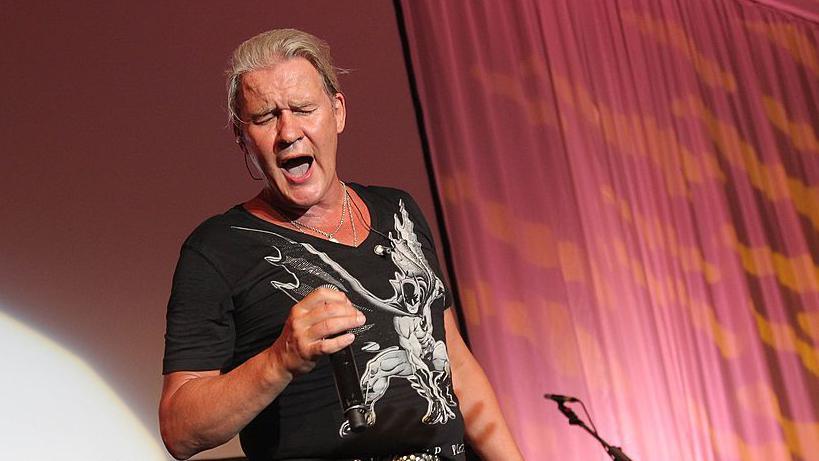Eurovision: Before Bambie Thug came the Rock 'n' Roll Kids
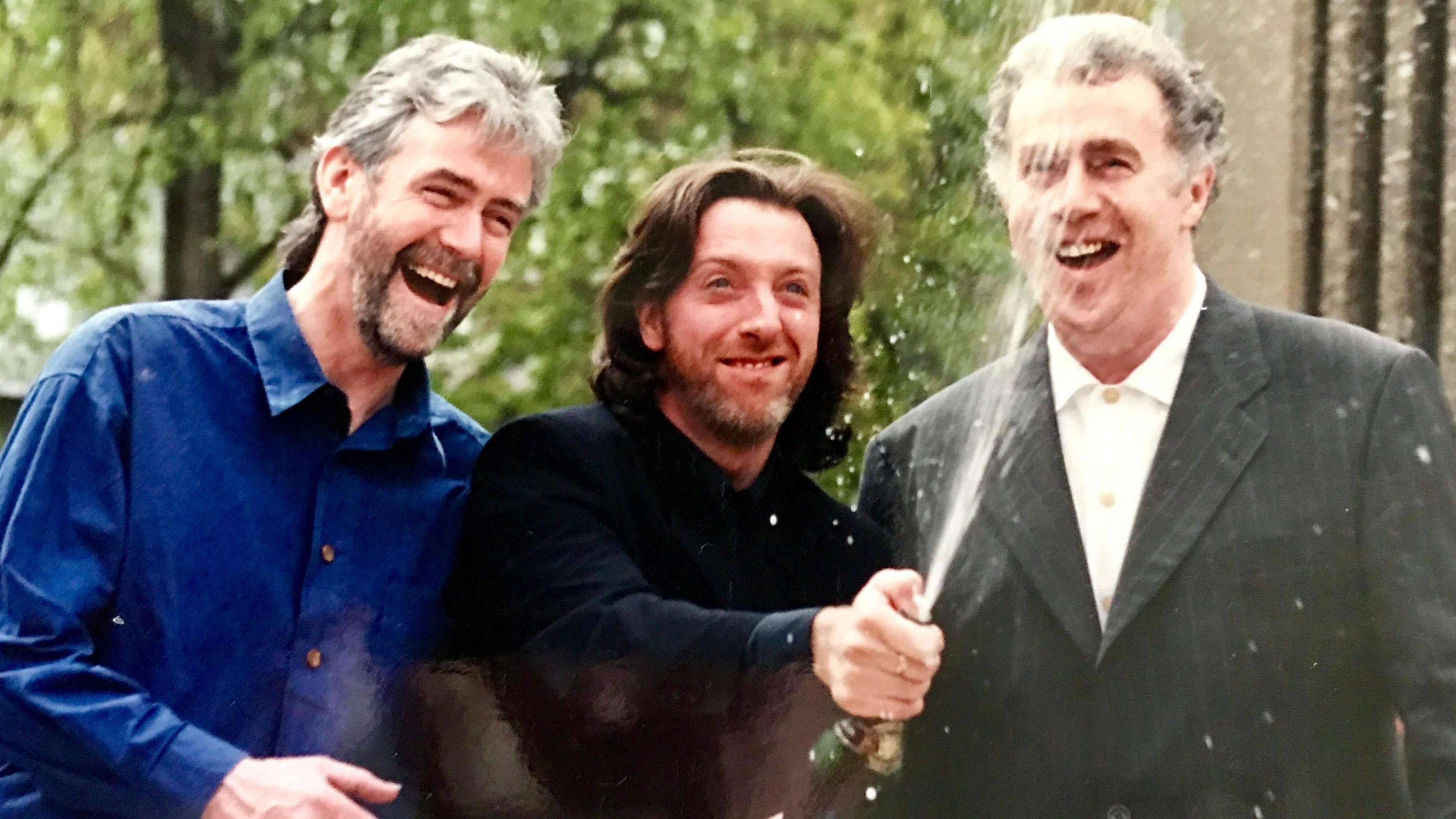
(From left) Charlie McGettigan, Paul Harrington and Brendan Graham were behind Ireland's Eurovision 1994 success
- Published
This weekend it's Bambie Thug - 30 years ago it was Ireland's 'Rock 'n' Roll Kids'.
In 1994 Ireland became the only country to win the Eurovision Song Contest three years in a row, a record that stands to this day.
The country clinched the coveted song contest trophy with a performance by Dublin singer Paul Harrington, with Co Donegal-born Charlie McGettigan on piano.
The ballad Rock 'n' Roll Kids, which was written by Brendan Graham, earned Ireland its sixth Eurovision victory.
When is the 2024 Eurovision final?
The 68th Eurovision Song Contest final takes place on Saturday evening in Malmo, Sweden.
Harrington will be announcing the results of the Irish vote live.
It will be broadcast live on BBC One, BBC Radio 2, BBC iPlayer and BBC Sounds.
Ireland's entry is Bambie Thug, performing their song Doomsday Blue.
The UK's entry is Olly Alexander, who will be performing Dizzy.
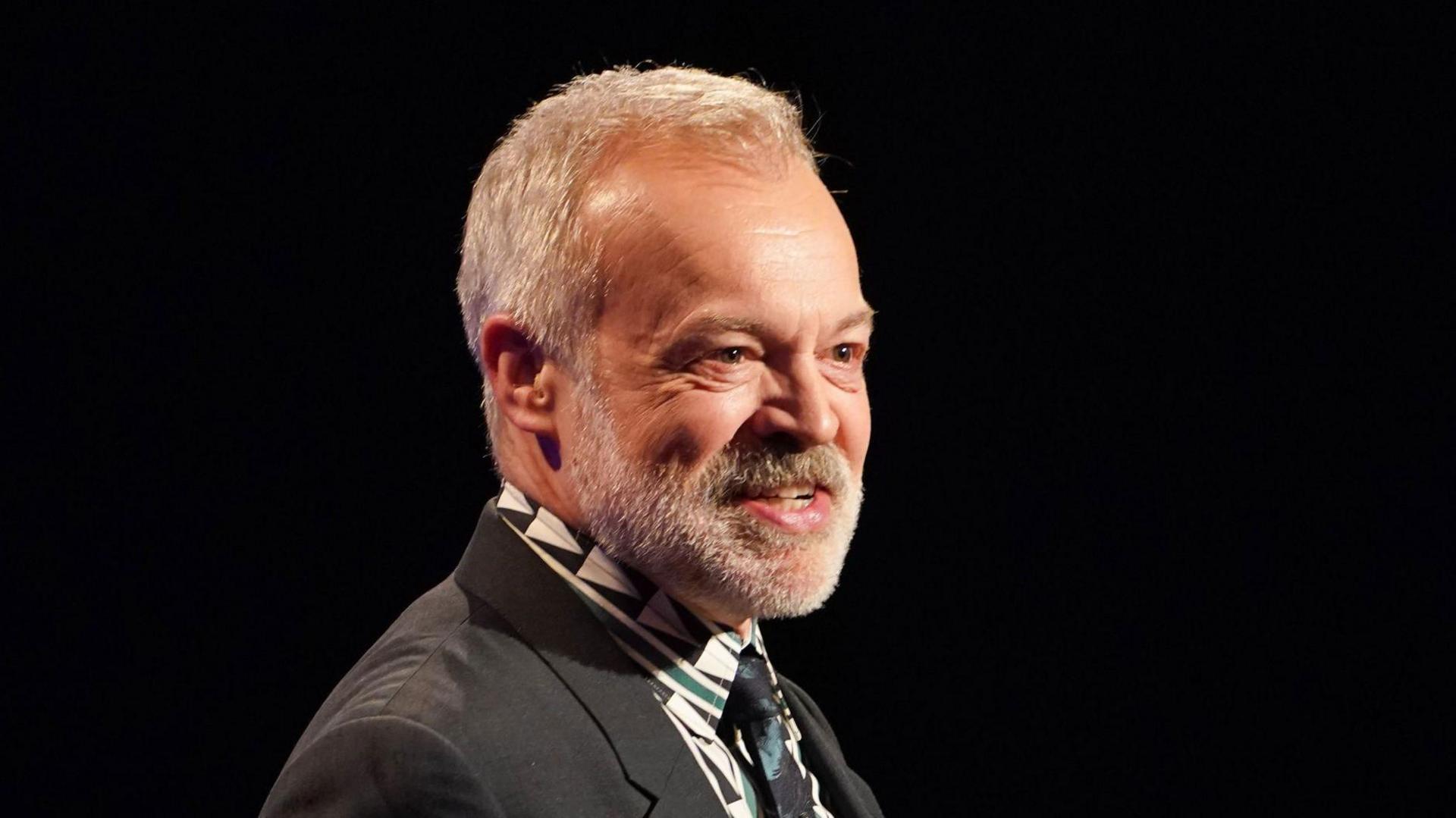
Graham Norton will be hosting the grand final for the BBC
Irish presenter Graham Norton will host the grand final for the BBC.
Amid controversy around Israel's entry in the context of the ongoing war in Gaza, the theme of the 2024 contest is "united by music". It features 37 performers chosen to represent their country.
Songs must be original and no more than three minutes long.
Lead vocals must be live and a maximum of six singers and dancers are allowed.
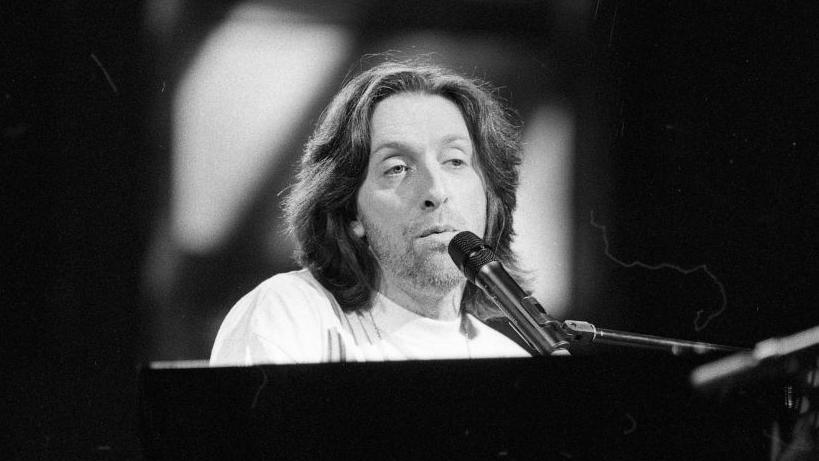
Paul Harrington says when he performed in 1994 the crowd's cheers were like thunder
'We had no idea how things would go'
Recalling the 1994 Eurovision which Ireland, as the previous year's winner, hosted in Dublin, Harrington told BBC News: "We had no idea how things would go on the night; the song would either walk it or it would do nothing."
He added: "The crowd in the Point Theatre was the biggest I've ever played to and just to see the various dignitaries was great."
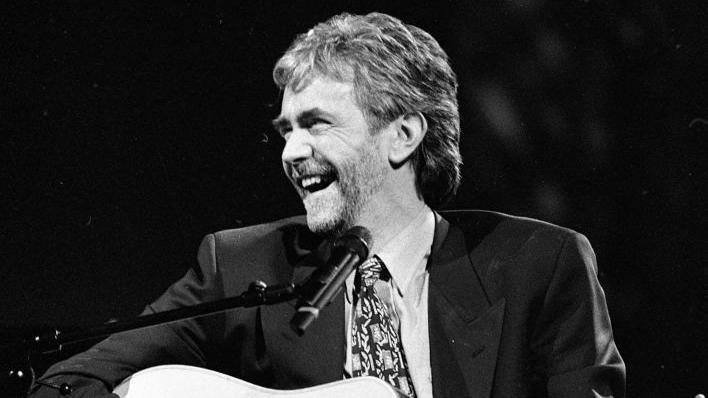
Ballyshannon-born Charlie McGettigan was part of the winning duo in 1994
Harrington and McGettigan's performance, combined with the introduction of Riverdance, which made its debut as the Eurovision interval act, brought Ireland to worldwide television viewers in an unprecedented way.
Their song, which tells the story of two lifelong friends reminiscing about their youth, struck a chord with many, combining evocative lyrics with soulful melodies.
"The roar of the crowd was like thunder because it was held in Dublin and I just happened to be a Dublin lad also," Harrington said.
"People still love the song and, in fact, it's become more popular in the past 10-15 years than it was 30 years ago."
The final tally of votes revealed a clear lead for Ireland, with 60 points ahead of the runner-up, Poland's Edyta Górniak.
The win followed victories by Linda Martin in 1992 and Niamh Kavanagh in 1993.
'I met my wife via Eurovision win'
Harrington said he was astonished by how quickly time had past since his and McGettigan's win.
"The doors that Eurovision has opened for me since this is nothing but amazing. I actually met my wife at an event I was asked to take part in after the win," he added.
"Thirty years later and I will be announcing the points from the Irish jury and public live to Malmo in Sweden on Saturday night."
Ireland would go on to win for a seventh time in 1996 with Eimear Quinn, cementing Ireland's lead of most Eurovision wins for a country.
That has since been matched by Sweden, but no other country has come close to winning three in a row.
Who is Bambie Thug?
Bambie Thug is a self-described queer, ‘ouija popstar’, who uses the non-binary personal pronouns they and them.
Their genre-defying Eurovision entry Doomsday Blue will be performed on Saturday evening's final alongside 25 other countries.
On Tuesday evening, Bambie Thug became the first Irish entry to qualify for a Eurovision Grand Final in six years.
The Cork singer was among 10 acts to qualify from the first semi-final at the Malmo Arena.
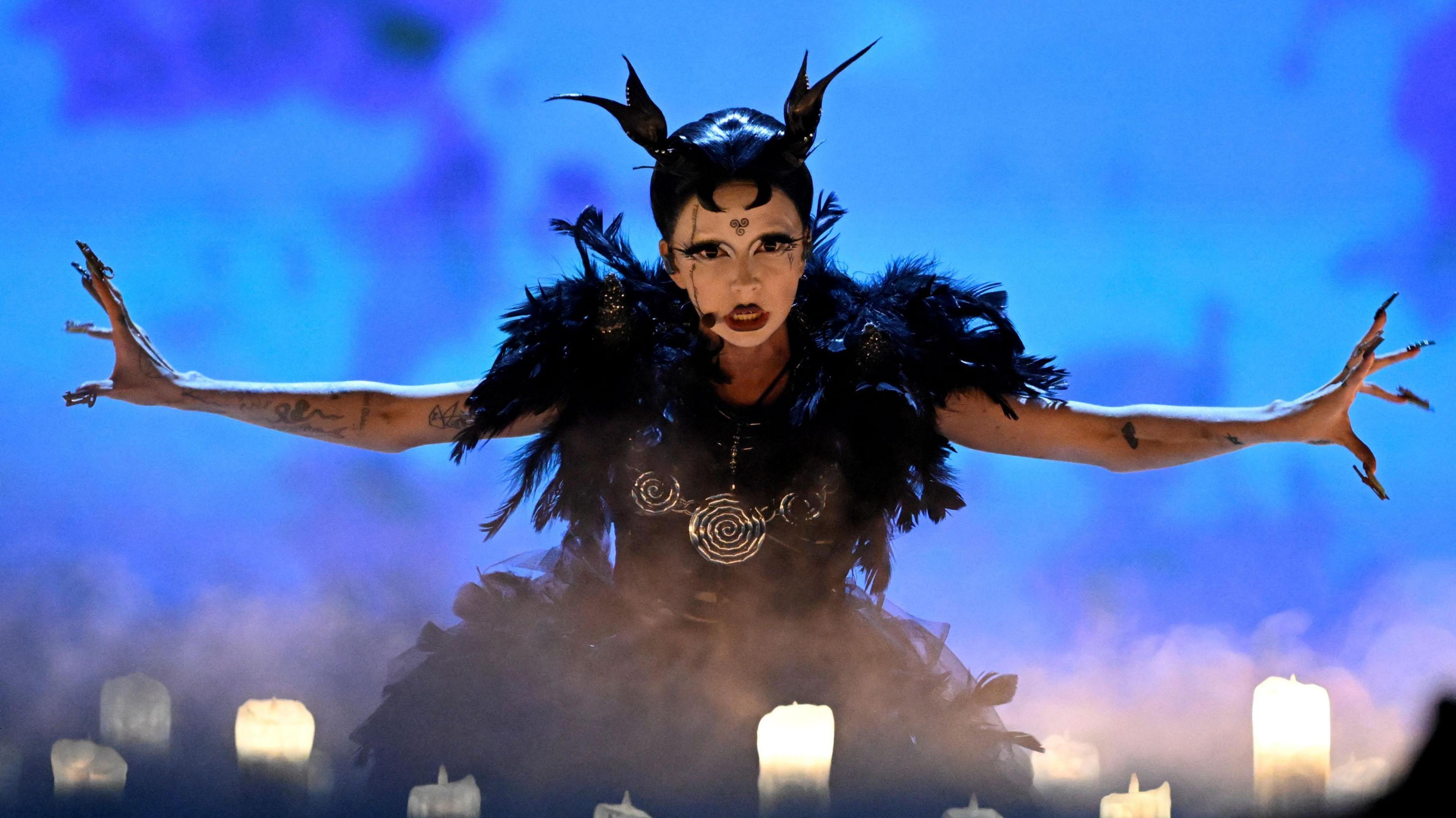
Bambie Thug will perform their song Doomsday Blue in Saturday's final
And, the odds are looking good for Bambie Thug - maybe more so than for the UK's Olly Alexander.
But to find out if they take home the gold medal position, you'll just have to tune into Saturday's final.
Related topics
- Published8 May 2024
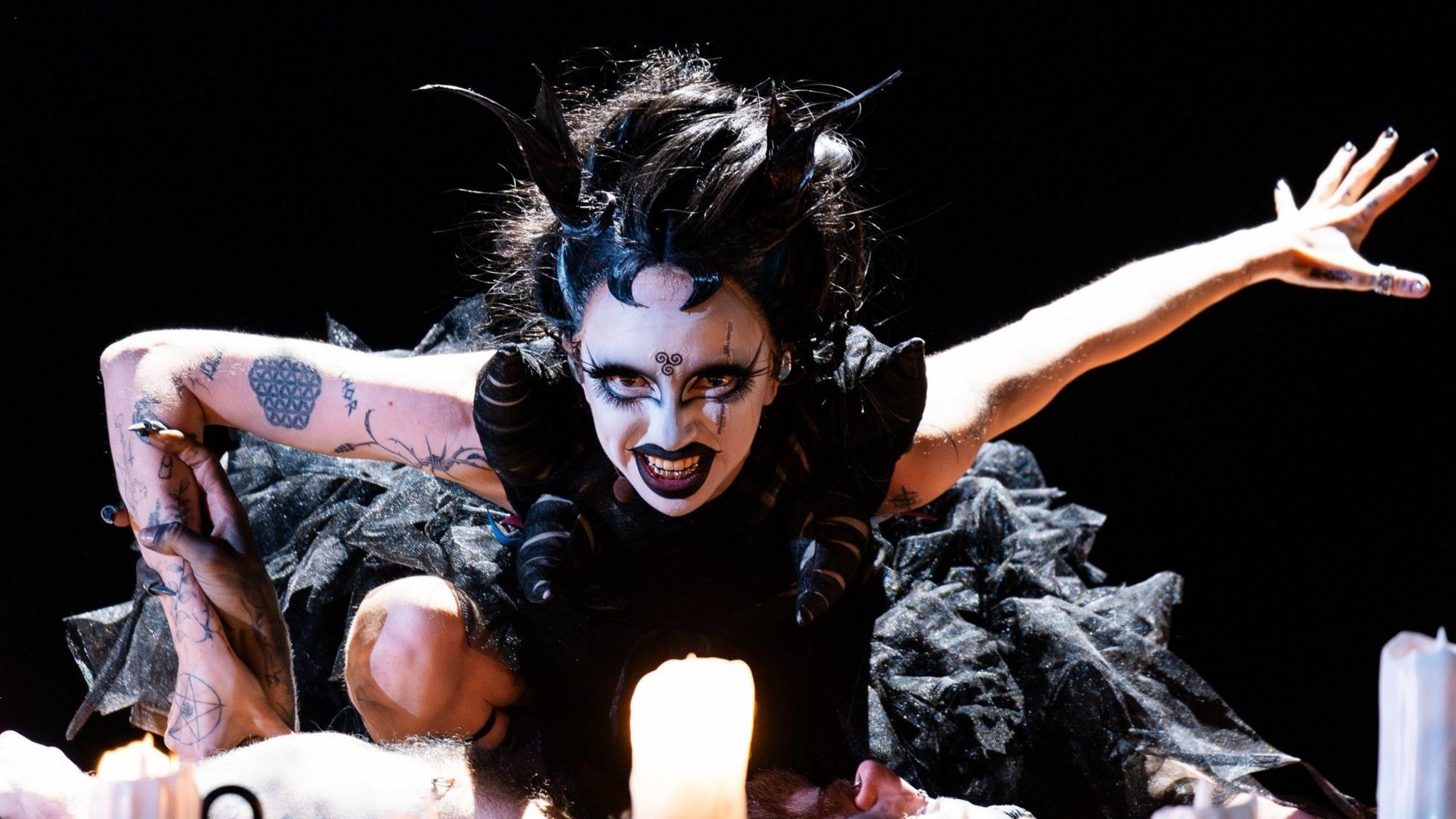
- Published10 May 2024
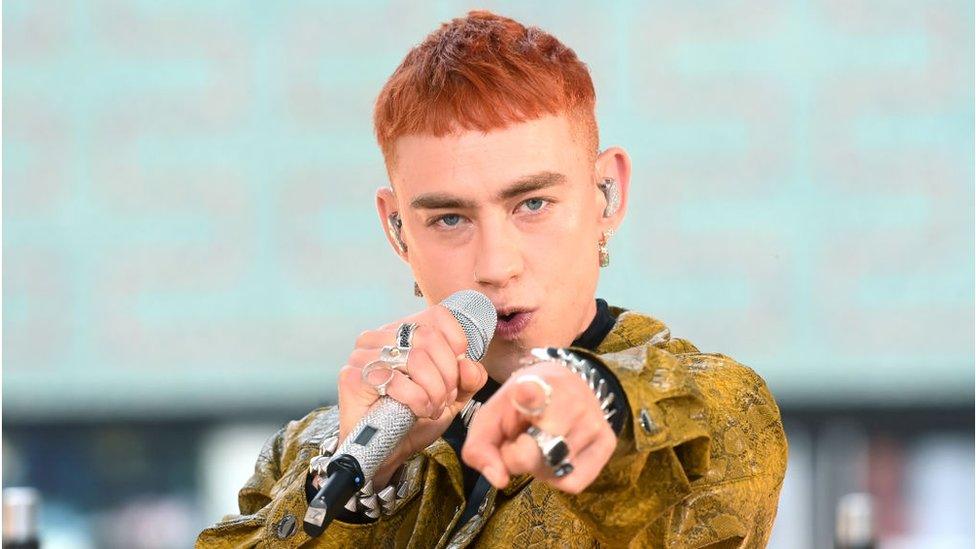
- Published8 May 2024
